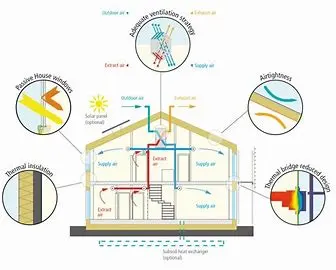All homes are electric, gas pipes are an additional cost. All electric just means, what, 2 or 3 outlets using slightly higher gauge wiring?
it’s not quite that trivial but if you’re building new the cost is roughly the same. I live in an all electric home and wouldn’t dream of ripping out the electric stove for a gas one, or getting a gas water heater. I mean I could go for an induction stove but that is a drop in replacement
Sky is blue. Water feels wet. News at 11.
Electric has been cheap to install all my adult life. It may be cheap to install, but it has traditionally been more expensive for any appliances requiring heating. For energy intensive operations like heating water and air, much more expensive.
Use a reverse cycle heat pump they are very efficient to heat and cool your building. Heat pump to heat your hot water tank is also very efficient.
Natural gas (not bottled propane) is generally still much cheaper per net BTU in most of the US for heating. I had to make a choice back in ~2005 when I switched from oil heat. At the time - with NG near it’s historical highs and my local electricity just 10c/hWh - they were on par, with electric having a theoretical advantage in ideal conditions and near parity in our coldest 2 months of the year. Of course since then electric has gone up 50% and NG has dropped by a factor of 3. To stich now would be prohibitively expensive, though, as the cost to extend the NG line has tripled (to around $15k or more). I’ll never make that back in energy savings.
That’s the future for sure, although still not quite viable if it gets decently cold and gas is still cheaper.
we need to be electrifying buildings today while we continue to develop and decarbonize the electric grid. also on all but the coldest days a heatpump powered by a natural gas power plant is more fuel efficient than burning the gas locally. technology connections did a few vids on the subject:
I agree with you that electric is the future and maintaining two separate utility infrastructures to every building that can do the same thing is sorta silly.
Technology Connections is always fun, but it seems you might have glossed over where he discusses the drawbacks that mean a heat pump isn’t a one-size-fits-all solution. It’s just much better than most people realize and the technology gets better each year.
Where I live it gets too cold for a heat pump to work very well for weeks at a time in the winter so supplemental electric heat is a must if fully switching off the gas (and that poor heat pump will be having to defrost the coils a lot). The issue with that is natural gas is still a good bit cheaper than electricity (we use gas for water heating, and sometimes dryers too because of this). It is viable for a good chunk of people in many other areas though so moving in that direction is still worthwhile where is does work.
I’m not sure what you mean about burning the gas locally being less efficient though? Home furnaces are commonly around 95% efficient these days. Is a natural gas power generation plant (with transmission losses on top) operating at a level even close to that?
Well yeah, easier to lay conduit than a gas pipe.
On a $750,000 house, adding gas lines is probably $5k, maybe $8k at the most (area dependent). Source: I’m a builder.
Gas doesn’t stop working when power goes out. Gas is cheaper in long run to use (again, area dependent). Gas is usually a lot more efficient.



